The developer behind Maidenhead’s proposed Nicholson Quarter, Rob Tincknell, says he plans independent shops and a sense of community to help bring people back to the town centre.
Speaking to Thames Tap at the launch of the Nicholson Quarter, Mr Tincknell, whose Areli Real Estate business is behind the regeneration of Battersea Power Station, said he wants use his experience from that scheme and, previously, at Gunwharf Quays in Portsmouth to help give Maidenhead back the profile it once had.
He said: “When I first started my career in 1990, I was buying commercial investments, offices, retail shops etc for a fund. I always remember that, at that time, Maidenhead used to be the place to be in the Thames Valley.
“If you could get an investment in Maidenhead it was the gem in your portfolio. It really was the go-to place. I think it’s fair to say, over time the crown has probably slipped and other locations have overtaken Maidenhead and I just think it’s a bit sad and it’s wrong.
“This is the time to correct that.”
He said the Royal Borough had been ‘absolutely amazing’ to work with but admits there are numerous problems involved in regeneration such as that proposed at Maidenhead.
He said: “There are easier things to develop, quite frankly. These town centres are fraught with multiple challenges and issues so they are very challenging but, of course, they are very rewarding as well. You can genuinely have a really positive impact on the community by doing something right.
“The council recognise that you have to have people back in the town centre and I consider that a key aspect of the future.
“This is a problem, not just for Maidenhead. We have these massive single-use, single storey structures, completely taking over the whole of a town.
“That was all fine when shopping was in demand and people would flock to them, but we have fundamentally changed, particularly with Covid-19, and now there isn’t half the number of shoppers.
“If you are going to change town centres you have to change back to having people living in them, working in them and enjoying them.”
Mr Tincknell said his 80-year-old mum illustrates the widespread change in shopping habits. She has discovered internet shopping and is completely converted to it.
“She is amazed that you can get stuff the next day,” he said.
The concept of independent stores and restaurants is high on the agenda for the Nicholson Quarter. Mr Tincknell said 10-15-year leases and fit outs costing hundreds of thousands of pounds, along with various guarantees, are not an option for many potential occupiers.
He suggests a flexible approach is necessary and is considering ‘turnover rents’ where shops may not have to pay when business is poor.
One example of a small shop selling everyday items at Battersea Power Station stands out.
Mr Tincknell said: “If you look at the General Store at Battersea Power Station, we had offers from Marks & Spencer, Waitrose and Sainsbury’s but we chose to do a deal with a chap called Raj who had two corner shops in Battersea.
“He’s an amazingly talented guy and we got on really well. So we leased the shop to Raj and now we’ve got something really amazing. Everyone thought we were bonkers.”
He said Raj is not only popular in the community but will deliver shopping to those who can’t get to him.
He added: “There’s one lady who he’ll put the shopping in her cupboards for her. Raj sits on the residents’ committee and if they say ‘we don’t like your bread’ he’ll change it within a week.
“Raj responds to what everyone wants. Therefore, we’ve got a general store that’s really part of the community. They support him and he supports them.”
The independent businesses include restaurants too. A pizzeria called Mother was chosen ahead of Pizza Hut.
Mr Tincknell believes retail remains central to a modern mix of uses even though it generates less income from rents than previously.
He said: “It doesn’t mean it’s not important, If anything it’s more important.”
He said the term ‘urban exploration’ is more relevant to today’s retail scene where people such as those attending Covent Garden, Brick Lane and Pimlico Market, don’t go to buy a specific product but to browse and may buy something they hadn’t planned and possibly eat or drink somewhere appealing that may not be a chain operator.
“Somewhere like Marlow is a great example, the shopping offer is amazing. The Shanly Group owns a lot of the high street and they’ve done an extraordinary job, creating that whole town and making it really active.
“There’s a lively mix of independent stores and independent restaurants. I, personally, think it’s somewhere people go for a nice day out and wander around a pretty environment.”
The Nicholson Quarter proposals include more than 300 senior living units. Mr Tincknell said the Covid-19 crisis could mean having their own home, rather than living in a care home, could now be preferable for retired people. There will be a great many services and facilities close by at the Nicholson Quarter including 1.5 acres of public realm which was not previously there.
Active town centres, he believes, will appeal to many seniors.
“This is a massively changing sector. We’ve got a really changing situation. In the not-too-distant future in the UK, one in four people will be over the age of 65 but only three per cent of the housing stock caters for that.
“A lot of people going into retirement are still very active. They want to downsize from big family homes but can’t. But even if you can provide that sort accommodation, they still want to participate in community classes and dance classes.”
The Covid-19 crisis may also encourage employers to move out of London and with Crossrail likely to make Maidenhead significantly more accessible from the capital, the scheme’s 374,000 sq ft of office space is seeking a wide appeal by catering for three distinct types of business.
There will be one headquarters building, one Grade A multi-let and another which will be more affordable for smaller firms.
Mr Tincknell said when he went to his central London office recently for the first time in 12 weeks, the difference in the capital was noticeable and he believes the effect on London will last.
He said: “There’s definitely going to be a massive impact in the way we work. Office businesses where there’s a lease event in the next five years, I’m absolutely certain, will be paying a huge amount of attention to what they are going to do about it – like never before.
“Maidenhead could really benefit from that. We can offer a much better quality of life and we’ve got parks, open spaces and countryside they haven’t got.”
Covid-19 has, however, partly deprived Mr Tincknell of one of the things he enjoys most about development – public consultation.
Much has already taken place and much of the scheme has been based on public feedback but the launch has had to be quieter than he would have preferred. Instead of a big public event, Areli has gone overboard with a mail out to 24,000 homes, a website and, as soon as Apple approves it, a dedicated app.
But Areli hopes to move fast. Mr Tincknell added: “We hope to have planning possibly by the end of this year and hope to start next year.”
Visit https://www.nicholsonquarter.co.uk
Image shows the Nicholson Quarter buildings (centre). The tall buildings to the lower left of centre are part of The Landing development.
© Thames Tap No 214 (powered by ukpropertyforums.com)

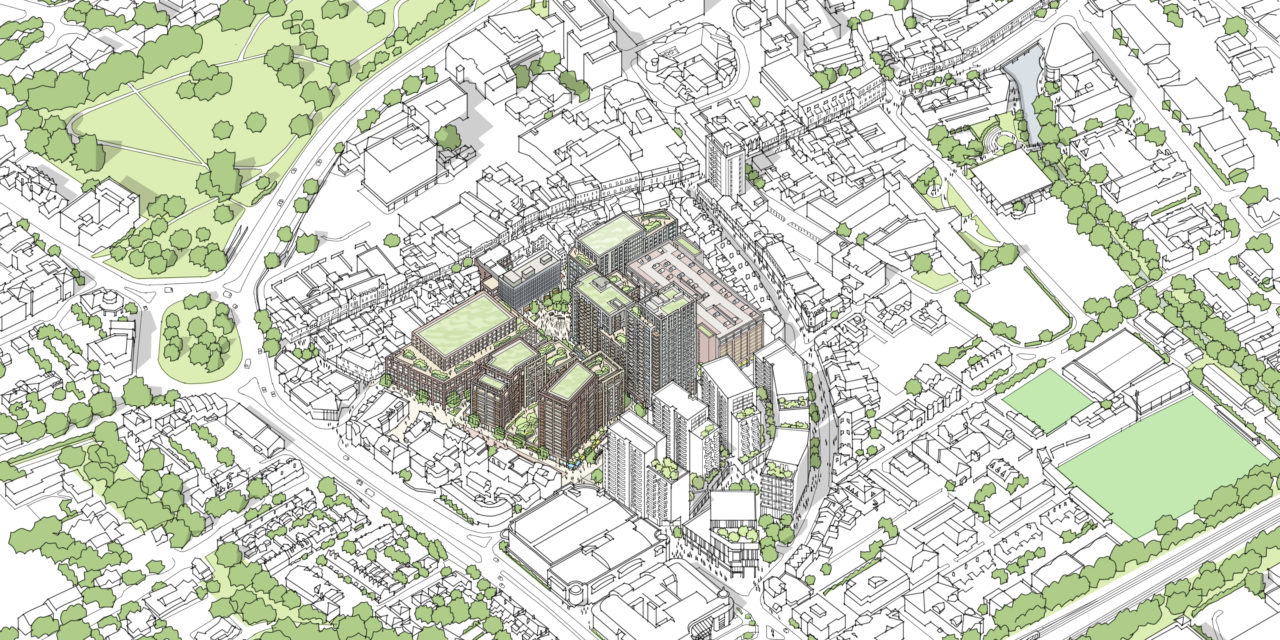
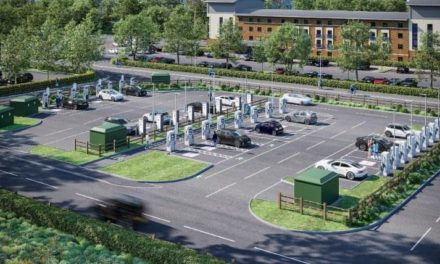
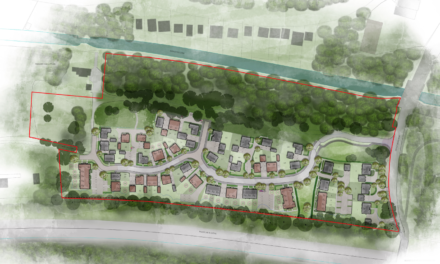
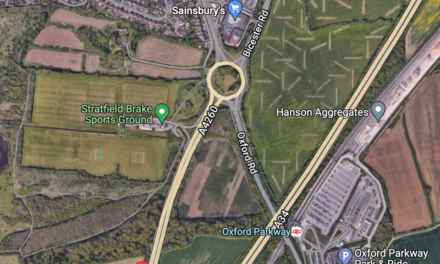
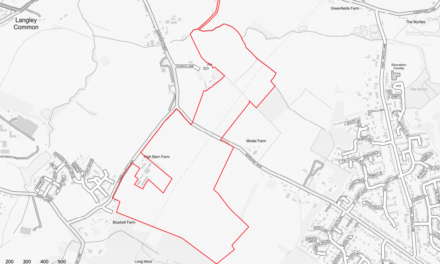










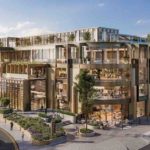


Trackbacks/Pingbacks